ABOUT THE DEPARTMENT
The Department of Electrical and Electronics Engineering is established in the year 1999 with 60 students at the entry level. The department is equipped with the state of the art equipments and also includes well developed laboratories in the related fields. This Department has a set of dedicated, talented, well qualified and experienced team as teaching faculty. All the faculty members are postgraduates with considerable research and academic experience. Few faculty members are doing their research in Anna University and other universities. The Department also has qualified and dedicated supporting staff for our laboratories.
Industrial visits to leading industries are organised every year to provide practical knowledge to the students. Guest lectures by notable personalities are conducted to enlighten the students and these lectures tap their creative instincts. The students are inspired to present papers. They are guided with abundant resources and study materials. They are allowed to participate in co-curricular contests organised by other colleges to provide them an exposure to know what is in progress at present and to improve their foresight.
PROGRAMMES OFFERED BY THE DEPARTMENT
The Department offers the following Course,
- UG- B.E- Electrical and Electronics Engineering
ACADEMIC EXCELLENCE
- The EEE Department of Jaya Engineering College has an excellent academic coordination methodology which has evolved over a period of more than 10 years and has been producing excellent results in terms of students pass percentage and university ranks.
- The departments focuses on continuous assessment of students throughout the semester and year through internal cycle tests, model tests etc.
- The department continuously tracks the course coverage by the faculty, and plans for any extra classes to complete the portions in time.
- To Supplementing the curriculum the department the department organizes Guest Lectures by experts from industry and academia to address the students on the subjects to supplement the curriculum and also create awareness on the recent trends in the respective subject.
- The Department collects the feedback from students on the respective faculty members of the courses to ensure that the students are comfortable with the teaching method and the faculty members. Any remedial action is taken in the teaching methods, if required.
- Special coaching for weak students are provided for the identified students during the above internal tests, etc and given special coaching classes, slip tests etc. Students who fail or do not perform well in the internal tests / model tests etc are counseled individually and the information is conveyed to the parents through personal contact over phone.
- Parents are requested and encouraged to visit the college and meet the HOD to discuss the wards performance.
- The Department of EEE emphasizes to the students the importance of excelling in final year projects where students apply the knowledge gained over the under graduate program and develop and complete an engineering project as a team.
- This not only provides a good insight into the knowledge gained but also develops soft skills of the students and prepares them well for job in the industry or higher studies.
VISION
The vision of the Electrical Electronics engineering department is to provide quality education in terms of industry needs, to train the students in contemporary technologies, develop the total personality of the individual and instill high level of discipline and making our students technologically sound, ethically strong and accomplished graduates, who in turn shall contribute to the betterment of the society and humankind.
MISSION
- To maintain a supportive and distinct environment to our students and faculty to achieve the learning and development come together.
- To maintain industry institute interaction and render service to the industry and community through educational technical and entrepreneurial activities and innovations.
- To prepare the cadre of Electrical and Electronics Engineers to cater the industry needs and contribute to the economic growth of the country.
PROGRAM OUTCOMES: [PO’S]
The program outcomes that the department presently adapts to are as follows:
- Engineering knowledge:Apply the knowledge of mathematics, science, engineering fundamentals, and an engineering specialization to the solution of complex engineering problems.
- Problem analysis:Identify, formulate, review research literature, and analyze complex engineering problems reaching substantiated conclusions using first principles of mathematics, natural sciences, and engineering sciences.
- Design/development of solutions:Design solutions for complex engineering problems and design system components or processes that meet the specified needs with appropriate consideration for the public health and safety, and the cultural, societal, and environmental considerations.
- Conduct investigations of complex problems:Use research-based knowledge and research methods including design of experiments, analysis and interpretation of data, and synthesis of the information to provide valid conclusions.
- Modern tool usage:Create, select, and apply appropriate techniques, resources, and modern engineering and IT tools including prediction and modeling to complex engineering activities with an understanding of the limitations.
- The engineer and society:Apply reasoning informed by the contextual knowledge to assess societal, health, safety, legal and cultural issues and the consequent responsibilities relevant to the professional engineering practice.
- Environment and sustainability:Understand the impact of the professional engineering solutions in societal and environmental contexts, and demonstrate the knowledge of, and need for sustainable development.
- Ethics:Apply ethical principles and commit to professional ethics and responsibilities and norms of the engineering practice.
- Individual and team work:Function effectively as an individual, and as a member or leader in diverse teams, and in multidisciplinary settings.
- Communication:Communicate effectively on complex engineering activities with the engineering community and with society at large, such as, being able to comprehend and write effective reports and design documentation, make effective presentations, and give and receive clear instructions.
- Project management and finance:Demonstrate knowledge and understanding of the engineering and management principles and apply these to one’s own work, as a member and leader in a team, to manage projects and in multidisciplinary environments.
- Life-long learning:Recognize the need for, and have the preparation and ability to engage in independent and life-long learning in the broadest context of technological change.
PROGRAMME EDUCATIONAL OBJECTIVES [PEO’S]
The Programme Educational Objectives of Electrical Electronics Engineering are given below and are numbered from PEO1 to PEO5.
PEO-1
To provide the graduates with solid foundation in Electrical & Electronics along with the fundamentals of Mathematics, Science, Computing and Engineering with a view to impart in them high quality technical skills like designing, modeling, analyzing and problem-solving with global competence.
PEO-2
To prepare and motivate graduates with recent technological developments related to core subjects like Advanced Control Systems, Special Electrical Machines, Artificial Intelligence techniques and future technological advances in the above mentioned domains so as to contribute effectively for Research and Development by participating in professional activities like publishing and seeking patents.
PEO-3
To train the graduates for a high degree of employability in both public and private sector industries at national and international level by initiating in them professional competence, ethical administrative acumen and ability to handle critical situations.
PEO-4
To prepare the graduates for higher education by providing training to excel in competitive examinations and to improve their technical and intellectual capabilities for life-long learning process.
PEO-5
To train the graduates to have basic interpersonal skills and sense of social responsibility that paves them a way to become good team members and leaders.
PROGRAM SPECIFIC OUTCOMES [PSO’S]
- Design, develop and implement electrical and electronics and allied interdisciplinary projects to meet the demands of industry and to provide solutions to the current real time problems.
- Graduates will be motivated for continuous self-learning in engineering practice and pursue research in advanced areas of Electrical Engineering in order to offer engineering services to the society, ethically.
- Be able to design, develop & take up research with eco-friendly innovative solution to any type of Electrical Engineering problem.
Course Outcomes [PO’S]
SOFTWARE AVAILABLE
- MATLAB
- ETAP



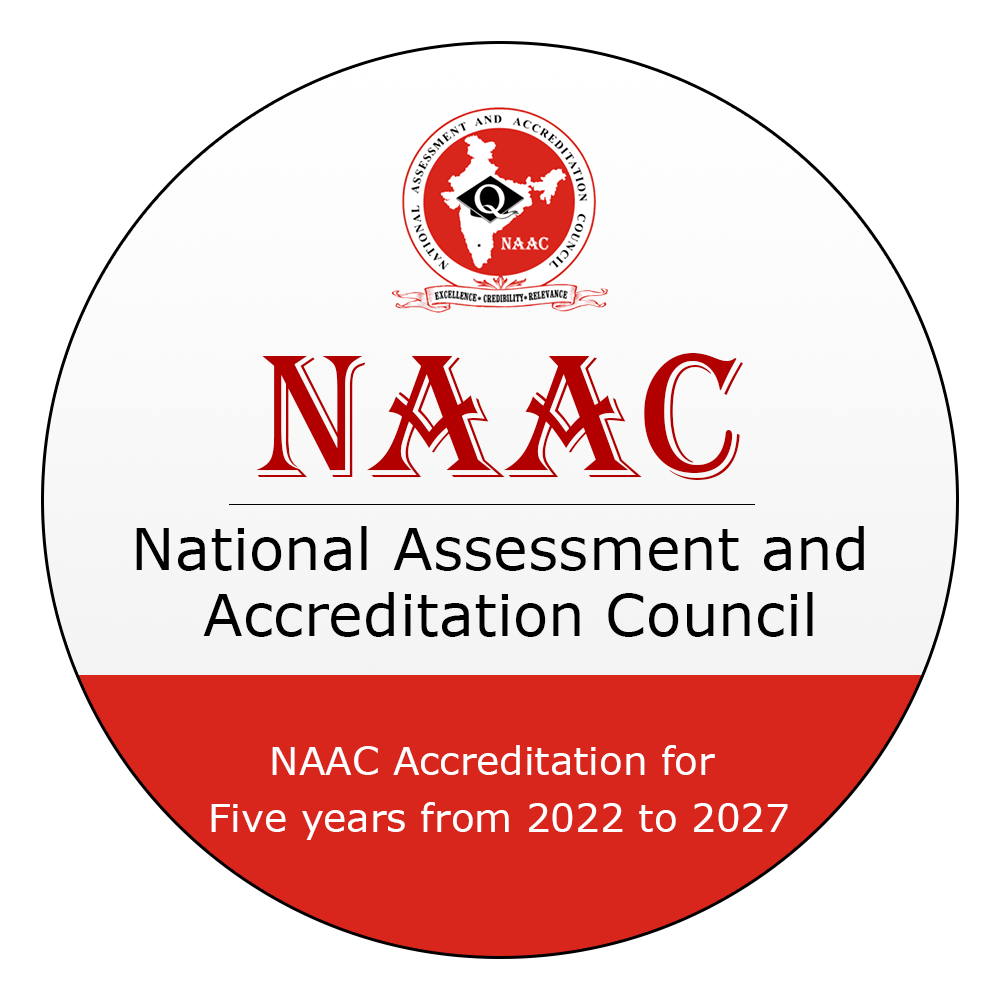
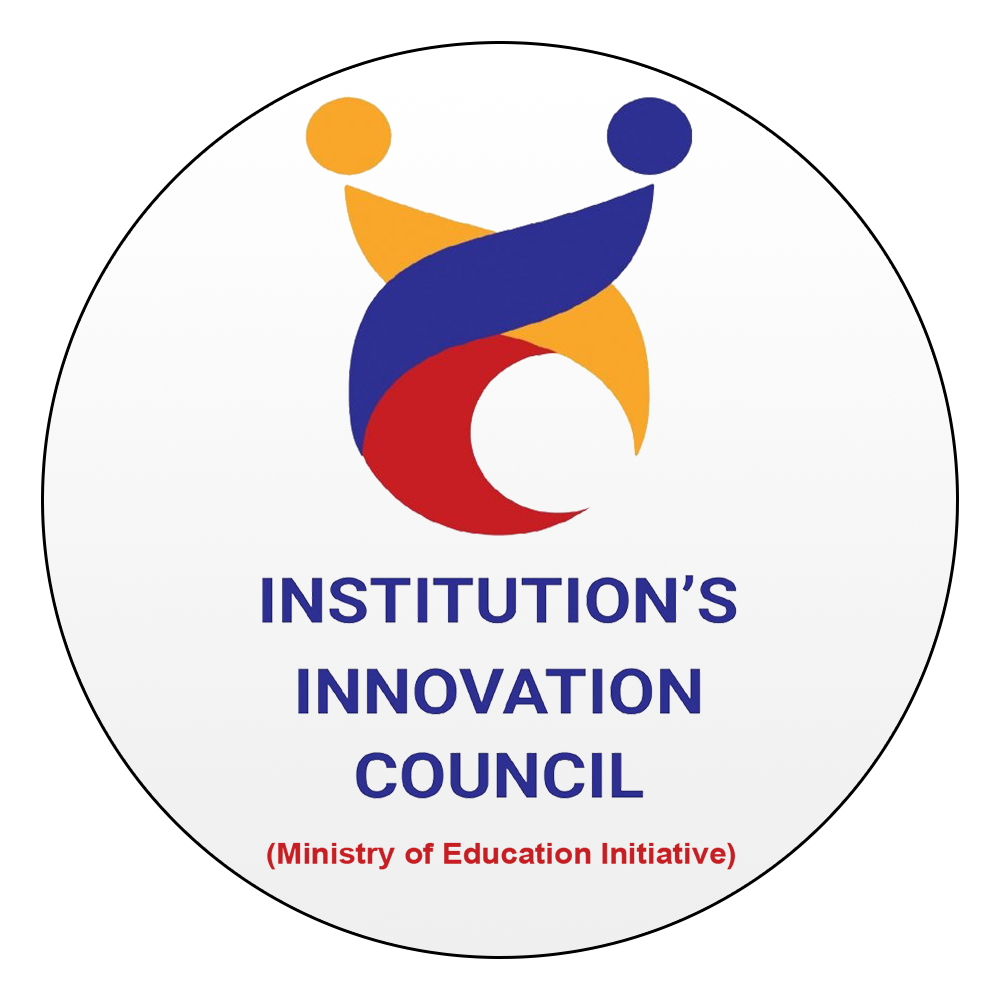
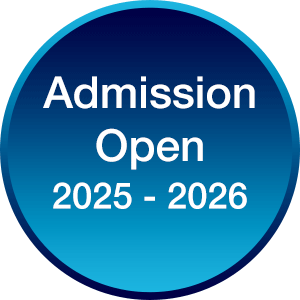

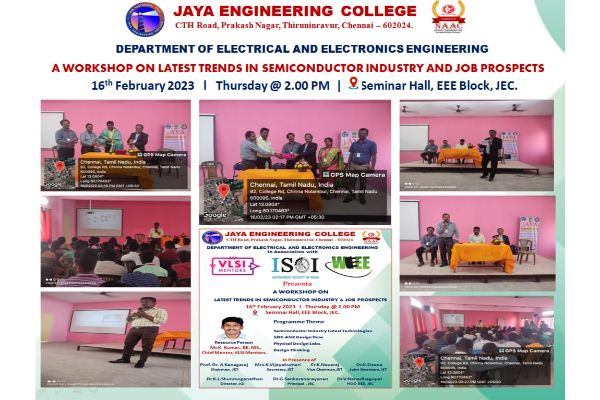
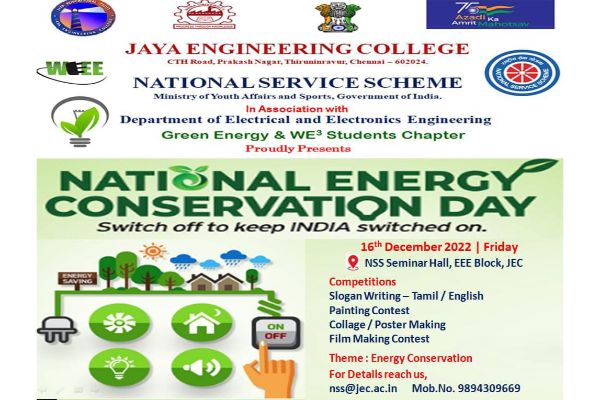
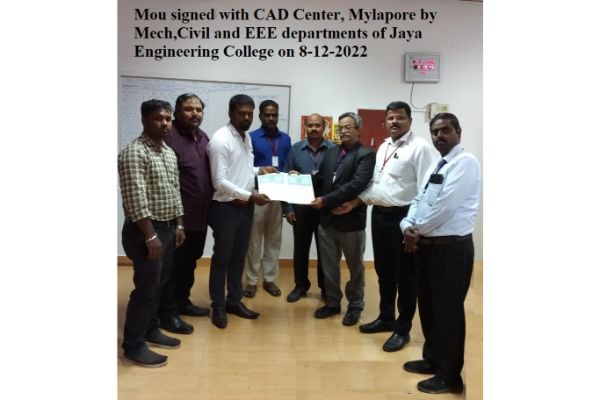
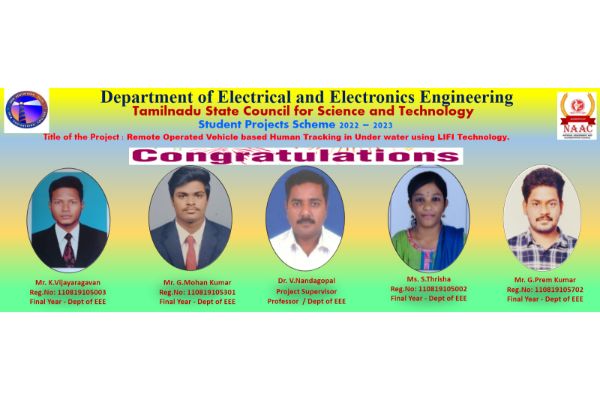
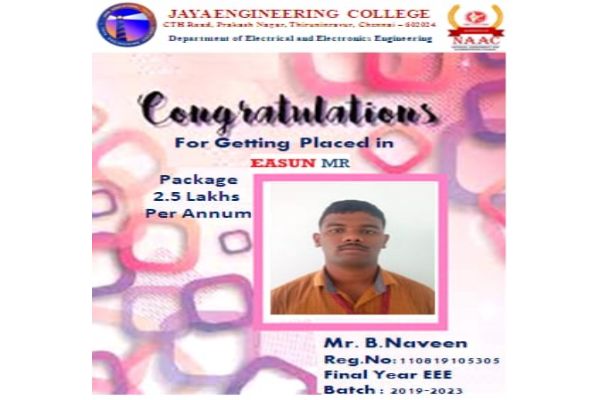
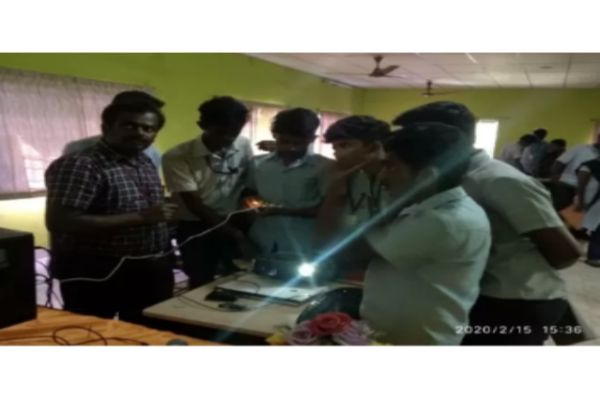
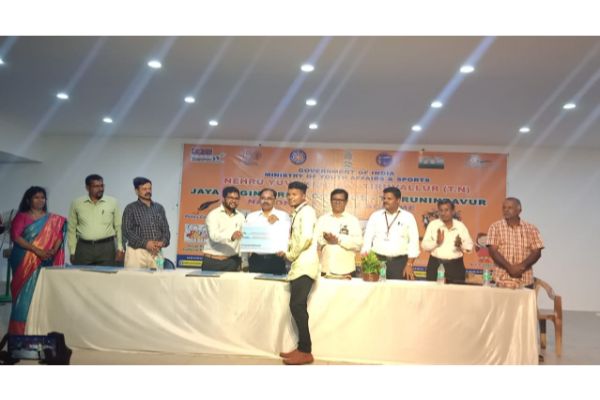
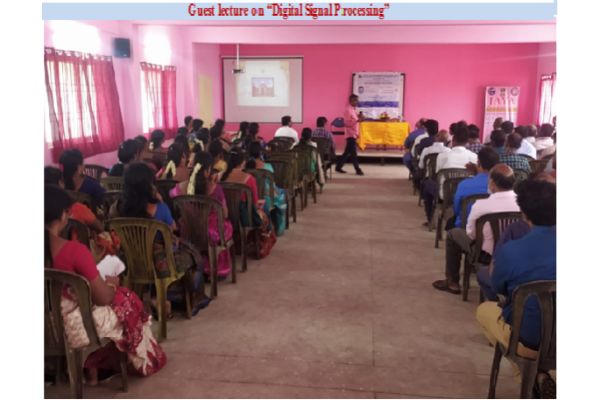
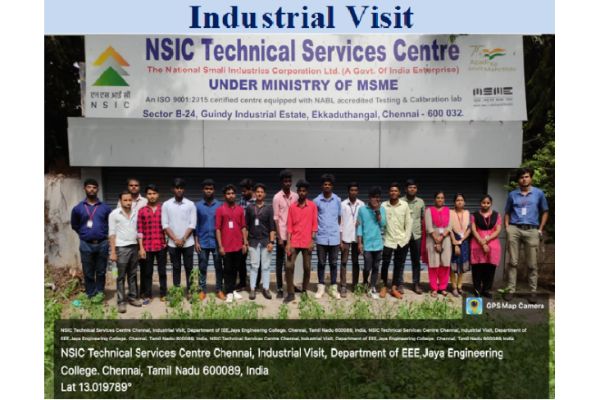
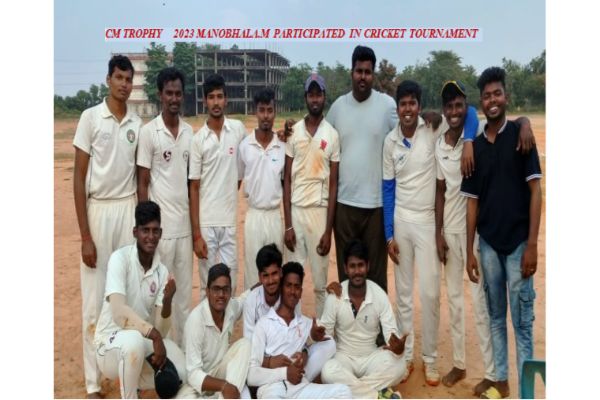
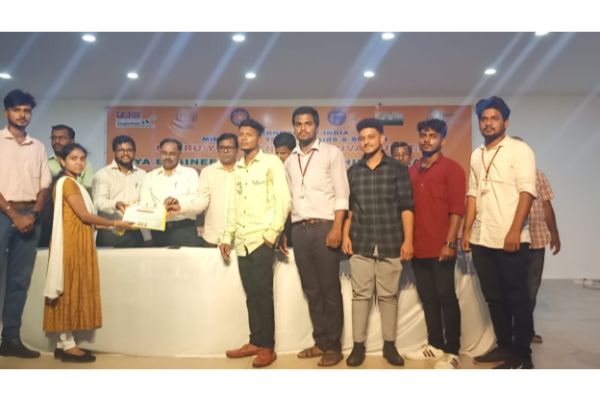
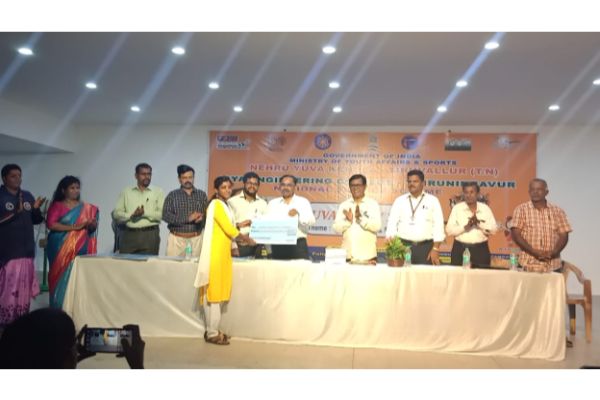


For Online Grievance : onlinegrievance@jec.ac.in